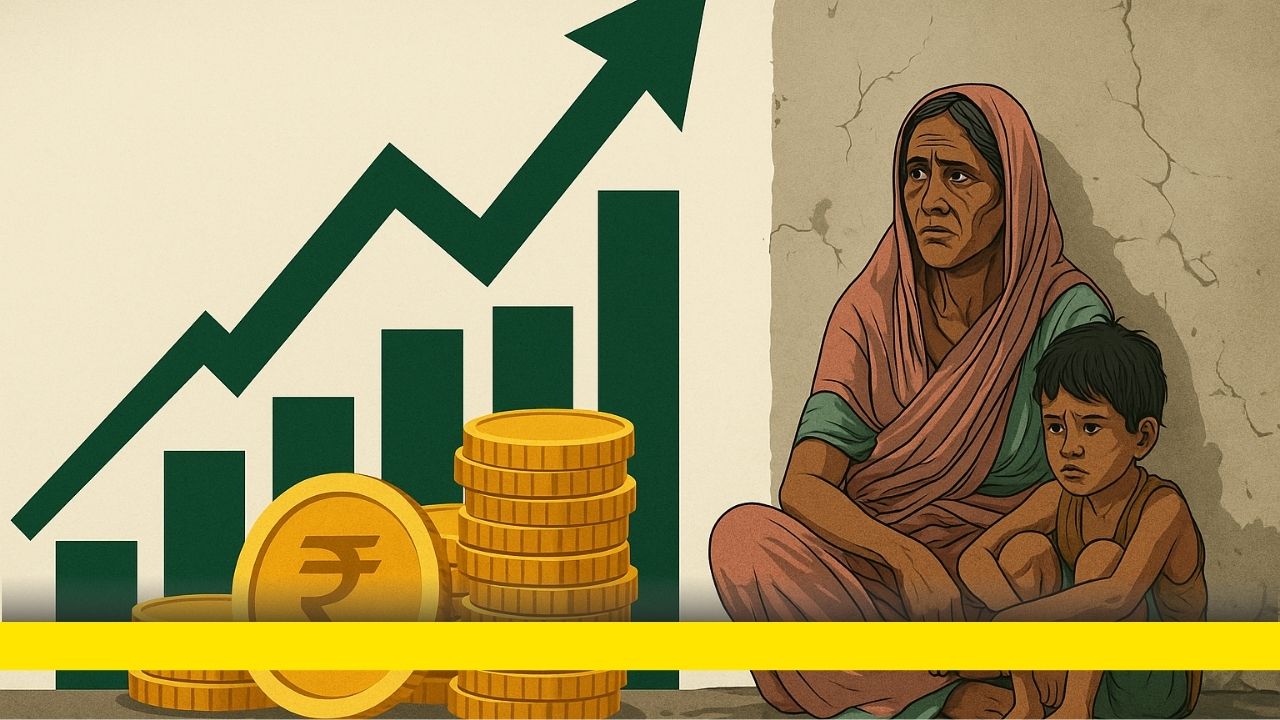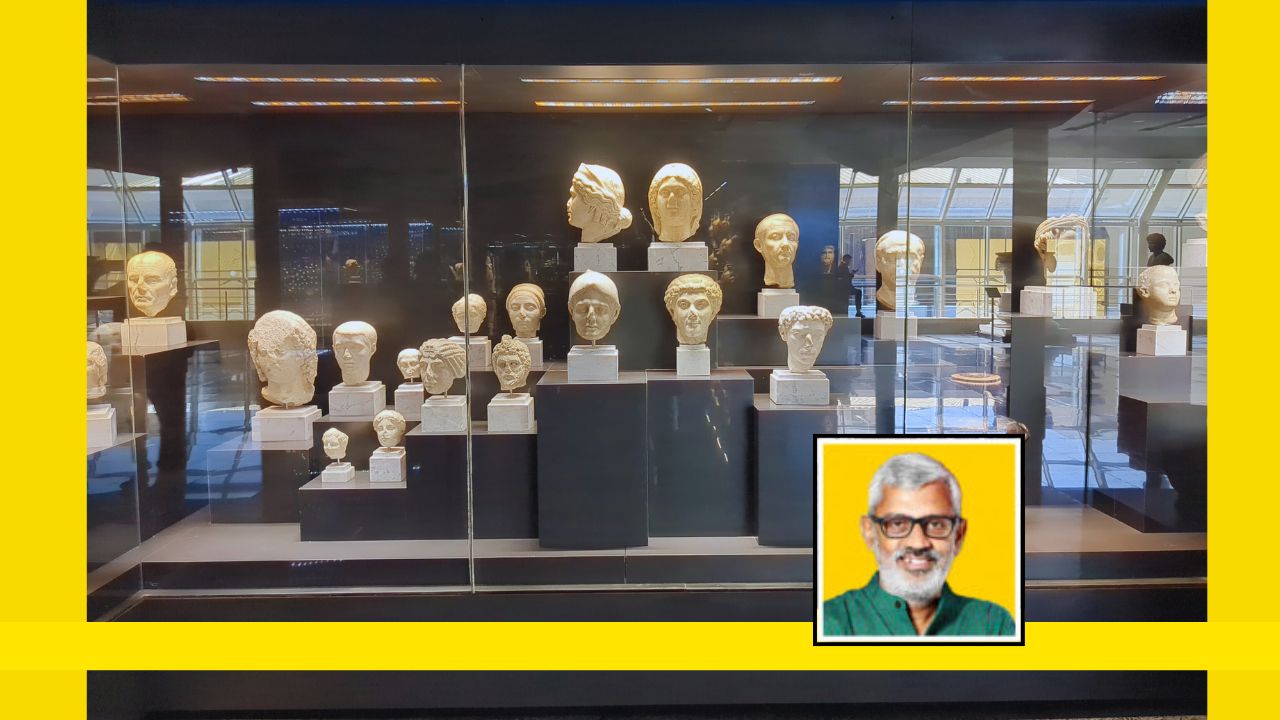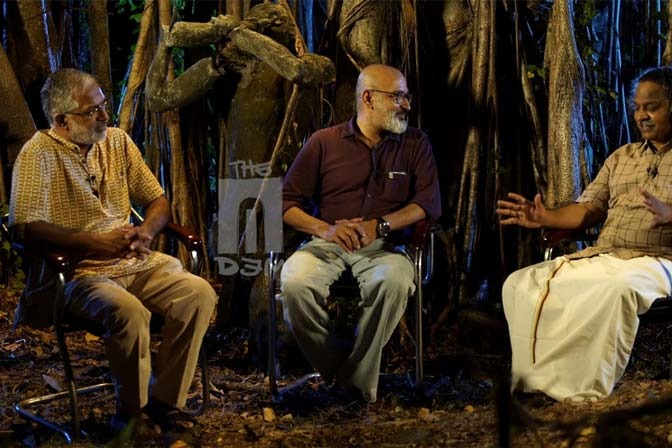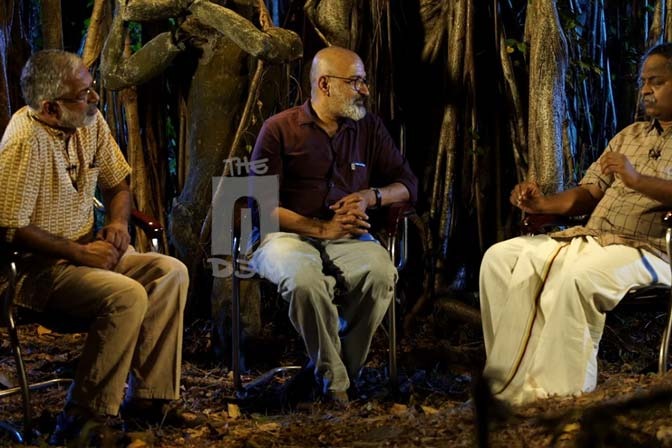I Haven’t Wronged My Characters: Banu Mushtaq
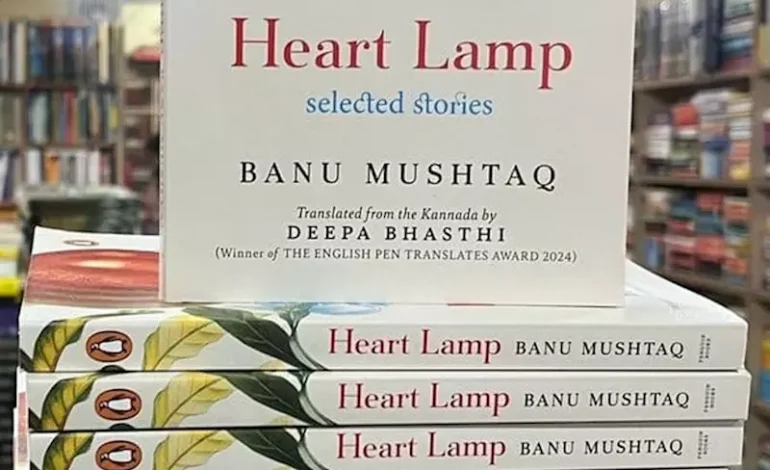
Booker Prize winner Banu Mushtaq has penned a new chapter in Indian literature with her acclaimed work, “Heart Lamp.” This collection of short stories, which incisively portrays the pain of the exploited, the marginalized, and women, has now garnered global attention. It is a recognition of the voiceless finding expression in words. In this significant moment, Banu Mushtaq shared her literary journey, struggles, and the genesis of “Heart Lamp” with Andolana, a Kannada daily from Mysuru.
Interview by Rashmi Koti

Rashmi Koti: This is the first time in Booker’s history that short stories have received the award. What are your thoughts on this?
Banu Mushtaq: It’s a huge moment. Short stories rarely get this kind of recognition—especially on a stage like the Booker, which has mostly celebrated novels. So, this changes things. And the fact that both the writer and translator are Kannadigas, and people of colour—that’s something we’ve never seen before. It’s not just a win for Kannada literature, but also for the short story form itself, which is often sidelined in big literary spaces.
Rashmi Koti: What kind of discussions did you have with Deepa while she was translating your stories into English?
Banu Mushtaq: I gave Deepa complete freedom. Initially, she selected 12 stories from “Haseena and Other Stories” for translation and sent them to me. Since my stories include many Muslim traditions and Urdu words, she would ask for explanations, and I would provide them. Beyond that, there wasn’t much discussion.

Rashmi Koti: Your statement that Islam doesn’t prevent Muslim women from praying in mosques caused controversy. Did that incident influence your writing?
Banu Mushtaq: No one had any objections to my stories, not even from the Muslim community. However, after this controversy, my ideas became clearer. It became essential to be more careful with my writing style and word choices.
Rashmi Koti: Deepa Bhasti’s effective translation of your work played a crucial role in it receiving the Booker Prize. What would you like to say about the power and importance of translators in this context?
Banu Mushtaq: The process of translation is often overlooked in our state’s literary landscape. If you look at Malayalam literature, many books there have been translated into other languages, and vice versa. However, not much translation work happens here. Therefore, there should be conferences on the power and importance of translators. Additionally, if a system is put in place to provide adequate compensation for translation work, the field of translation will undoubtedly expand, encouraging more translators to emerge.
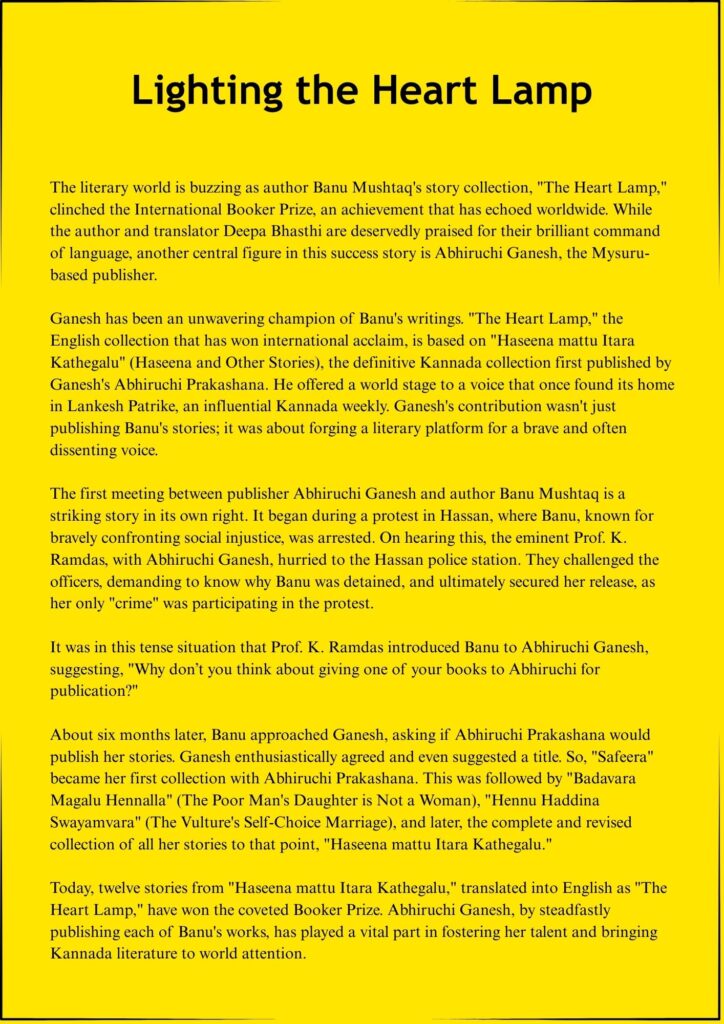
Rashmi Koti: Have your characters ever haunted you?
Banu Mushtaq: Absolutely not. My characters have never complained or demanded justice from me because I have never wronged them. There have been many instances where I and the character became one. Moreover, I have never deceived myself, so I have never deceived my characters. That’s why none of them have ever been at odds with me.
Rashmi Koti: What message would you like to give to the new generation of writers?
Banu Mushtaq: The new generation of writers is writing in accordance with the needs of the new era. Many important young writers have emerged, and their writing is very clear and rich. Writing itself is a cultural act; it’s a social and political response. Therefore, through writing, we must provide progressive thoughts for our society and country, actively work towards implementing them, and light the lamp of thought in our society.




